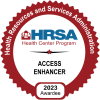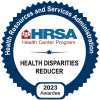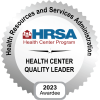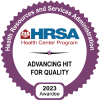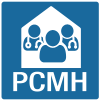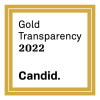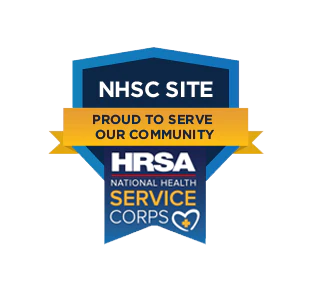This blog post was written by Monica Reu, Behavioral Health Outpatient Supervisor at Community Health Systems.

“Sticks and stones may break my bones but words shall never hurt me.”
At some point in life, most people have heard this phrase or at least some variant of it. In its earliest publication, dating back to the early to mid-1800s, the phrase primarily was used as a defense against name calling and verbal bullying. It was later most known in a children’s rhyme and has appeared in many songs, either in its typical form or with altered lyrics.
However, we now know that words matter, and words can and DO hurt people. Brain imaging studies support the theory that words affect how people experience pain. There was a study done in 2019 that found that pain-related and negative words made the intensity of the pain that a person experienced worse than with neutral language. Pain-related words created a stronger response in many areas of the brain, such as the anterior cingulate cortex and dorsolateral prefrontal cortex (https://www.ncbi.nlm.nih.gov/pmc/articles/PMC6749494/). Additionally, words can also cause hurt. There have been multiple studies on the effects of verbal abuse individuals (children, teens, and adults alike) that have shown correlation and causation with negative mental health outcomes, such as depression.
What is Stigma?
In the most basic sense, stigma is a set of negative and/or unfair beliefs that a society, group of people, or an individual person has about something. This something can be a particular circumstance, quality, a person, or a group of people. For the purposes of this article, the stigma being discussed is associated with persons with a substance use disorder or persons with mental illness.
There are 3 types of stigma: public, systematic and self. Public stigma encompasses public discrimination and devaluation by others. Systematic stigma includes intentional and unintentional reduced access to care and resources due to policies. Self stigma refers to internalization of negative stereotypes and beliefs.
What we say and how we say it makes a world of difference to a person with a substance use disorder or mental illness. What does mental health and substance use stigma look like?

How does stigma hurt?
Nearly 9 out of 10 people with mental illness indicate that stigma and discrimination has had a negative effect on their lives (https://www.mentalhealth.org.uk/explore-mental-health/a-z-topics/stigma-and-discrimination). Other negative outcomes of stigma include:
- reduced hope
- lower self-esteem
- increased psychiatric symptoms
- difficulties with social relationships
- reduced likelihood of staying with treatment
- more difficulties at work
- living in decent housing
- being socially included in mainstream society
- increase in social isolation
Breaking the Stigma
The National Alliance on Mental Illness (NAMI – https://www.nami.org/Home) has some ways that individuals can help break stigma around behavioral health challenges:
- talk openly about mental health and substance use – social media can be a great space for positivity and inclusivity
- educate yourself and others – respond to negative comments and misperceptions
- watch the language – remind others that words matter (see below)
- promote connection between mental and physical illness – utilize comparisons to how a person may be treated with diabetes or cancer
- utilize compassion
- choose empowerment over shame

Try these simple tips for talking.
Do Say:
- “Thanks for opening up to me.”
- “Is there anything I can do to help?”
- “I’m sorry to hear that. It must be tough.”
- “I’m here for you when you need me.”
- “I can’t imagine what you’re going through.”
- “People do get better.”
- “Oh man, that sucks.”
- “Can I drive you to an appointment?”
- “How are you feeling today?”
- “I love you.”
Don’t Say:
- “It could be worse.”
- “Just deal with it.”
- “Snap out of it.”
- “Everyone feels that way sometimes.”
- “You may have brought this on yourself.”
- “We’ve all been there.”
- “You’ve got to pull yourself together.”
- “Maybe try thinking happier thoughts.”
The following website has posters and resources to help with utilizing destigmatizing language and person-first compassionate language: https://www.aha.org/people-matter-words-matter

Take the pledge to be stigma free through the NAMI website:
https://www.nami.org/Get-Involved/Pledge-to-Be-StigmaFree
Our Behavioral Health Team is here to help answer any questions you may have, and to help you be the best version of yourself you can be! Call 608-361-0311 to schedule today.
References and Additional Resources:
https://www.tn.gov/behavioral-health/stigma.html
https://www.aha.org/system/files/media/file/2023/04/PMWM-child-adolescent-language.pdf
https://psychcentral.com/blog/words-can-change-your-brain#effects-on-the-brain






